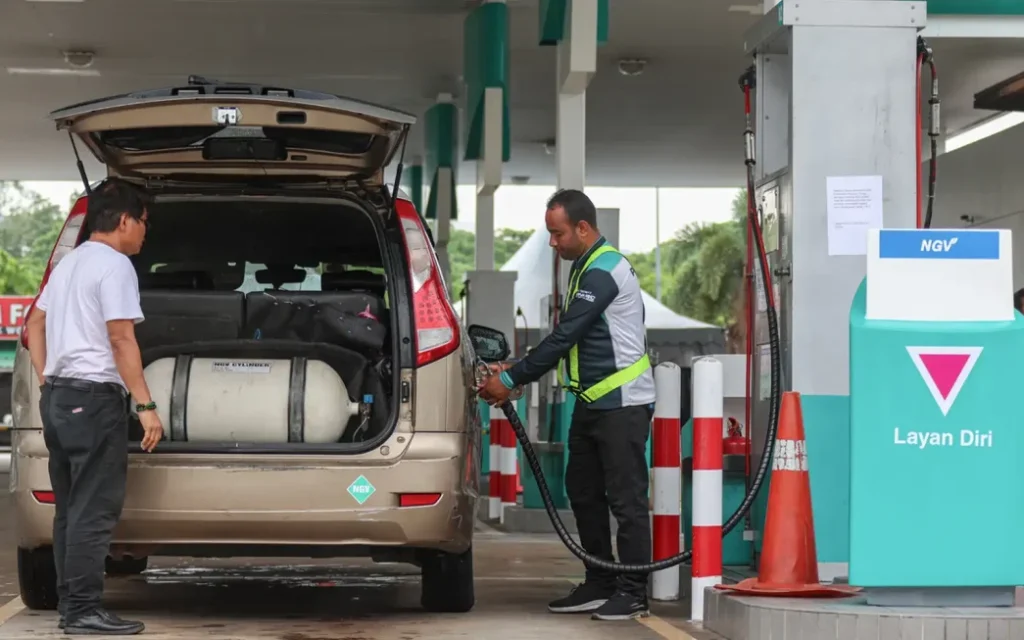Nigeria’s Road to Electric Vehicles

Nigeria’s transportation system is at a turning point. Around the world, countries are pushing toward cleaner and smarter mobility, and Nigeria is beginning to ask itself how it will fit into this global shift. Cars powered by fuel have long dominated the roads, but the conversation about electric and hybrid vehicles is growing louder. For Richard Akpodiete, a Nigerian-born automotive expert now based in Germany, the transition is not only possible but also necessary if the country wants to prepare for the future.
Akpodiete is not just speaking from the sidelines. With a Bachelor’s degree in Mechanical Engineering from Cyprus International University and a Master’s in Automotive Management from EBS University in Germany, his career has taken him deep into the heart of the auto industry. His professional work at INEOS Automotive in Böblingen, Germany, focuses on quality management and sustainability. From his perspective, Nigeria has an opportunity to reimagine its transport systems and embrace innovations that could transform cities, businesses, and daily life.
When asked what Nigeria needs most to support the adoption of electric vehicles and other modern forms of transport, Akpodiete places infrastructure at the top of the list. He believes it is not only about cars on the road but about building safer networks that include bicycles, e-scooters, and proper pedestrian walkways. In Europe, he says, governments take safety seriously, ensuring cyclists and scooter users have dedicated spaces. For Nigeria, creating that type of environment would make it easier for people to embrace alternatives while feeling secure.
He also highlights the importance of local vehicle assembly, which has been part of Nigeria’s automotive policy for years. Although some progress has been made, he explains that most assemblers in Nigeria still depend heavily on imported parts, especially from China and India. This dependence slows growth and weakens the industry. Building a local supply chain of parts producers and investing in indigenous expertise could change the picture. However, the cost of building modern automotive facilities is enormous, often running into billions of dollars. That is why the right partnerships and financing options will be critical if Nigeria wants to grow beyond assembling cars into becoming a true automotive hub.
Government efforts so far have shown promise but remain limited. Akpodiete points to initiatives such as the Lagos BRT electric buses and collaborations between private electric vehicle companies and state governments. While these steps are commendable, he believes they must be scaled up quickly. Stronger investments in local production and clearer policies that encourage both individuals and businesses to shift to low-emission vehicles will be vital. Without incentives, the pace of adoption will remain slow.
He draws a contrast with countries like Germany, where governments take a long-term approach. They design energy stations that can serve petrol, compressed natural gas, electric charging, and even solar power in one location. This versatile planning allows people to gradually adopt new technologies without feeling cut off from older ones. For Nigeria, hybrid vehicles could play this transitional role. Since they allow drivers to switch between fuel and electricity depending on the journey, hybrids could ease people into the new era without completely removing what they are used to.
Policy also matters greatly. Akpodiete suggests that Nigeria should introduce incentives and penalties that encourage behavioral change. High-emission vehicles could be charged extra fees, while subsidies could be offered for those choosing electric or hybrid cars. For micro-mobility options like e-scooters and e-bikes, defined parking zones and monitoring systems through mobile apps could prevent misuse and even create jobs for battery replacement and repairs.
Infrastructure development, however, goes beyond charging stations. Akpodiete sees digital connectivity, smart traffic systems, and well-planned urban hubs as just as important. Nigeria’s cities, especially Lagos, Abuja, and Port Harcourt, suffer from congestion that affects productivity and quality of life. By designing dedicated lanes for buses, bicycles, and scooters, and integrating technology for traffic monitoring, cities can move closer to efficiency and safety.
Regulatory agencies also have a part to play. According to Akpodiete, the Nigeria Customs Service should enforce international standards for imported vehicles, ensuring only quality cars make it into the country. The Federal Road Safety Corps, on the other hand, could implement stricter roadworthiness checks and use digital tracking to improve compliance. Strong enforcement would not only save lives but also reduce carbon emissions by pushing out vehicles that no longer meet modern standards.
Urban planning is another area he considers crucial. In Europe, transport planning often involves collaboration between architects, engineers, and tech specialists. Nigeria could adopt similar strategies by limiting informal transport options like Danfo buses and Keke, which often add to congestion. Instead, micro-mobility solutions could be introduced in universities, estates, and campuses to ease short-distance movement.
One area that excites Akpodiete is the potential of e-scooters and bicycles. In Germany, these systems are carefully monitored through apps that track where scooters are parked and how far they can be used. He believes similar systems could be rolled out in Nigerian estates, universities, or controlled environments where they can serve as last-mile solutions. This would not only improve accessibility but also create new streams of employment for young Nigerians tasked with maintaining the devices.
Perhaps one of the most overlooked benefits of rethinking mobility is its impact on public health. When people walk, cycle, or use scooters instead of cars for short trips, they become more active. This reduces reliance on fuel, lowers traffic, and encourages healthier lifestyles. In Germany, many people cycle to train stations, leave their bikes in secure parking spots, and continue their journey on public transport. For Nigeria, adopting similar patterns could significantly ease congestion while improving well-being.
For Akpodiete, the message is clear: Nigeria’s transition to electric vehicles and modern mobility will not happen overnight. It will require planning, investment, and cultural change. But with the right steps—supporting local assembly, building versatile energy stations, designing safe infrastructure, and creating strong policies—Nigeria can carve out its own path. The goal is not just to keep up with global trends but to design a transport system that meets the needs of its people today and in the future.





Responses